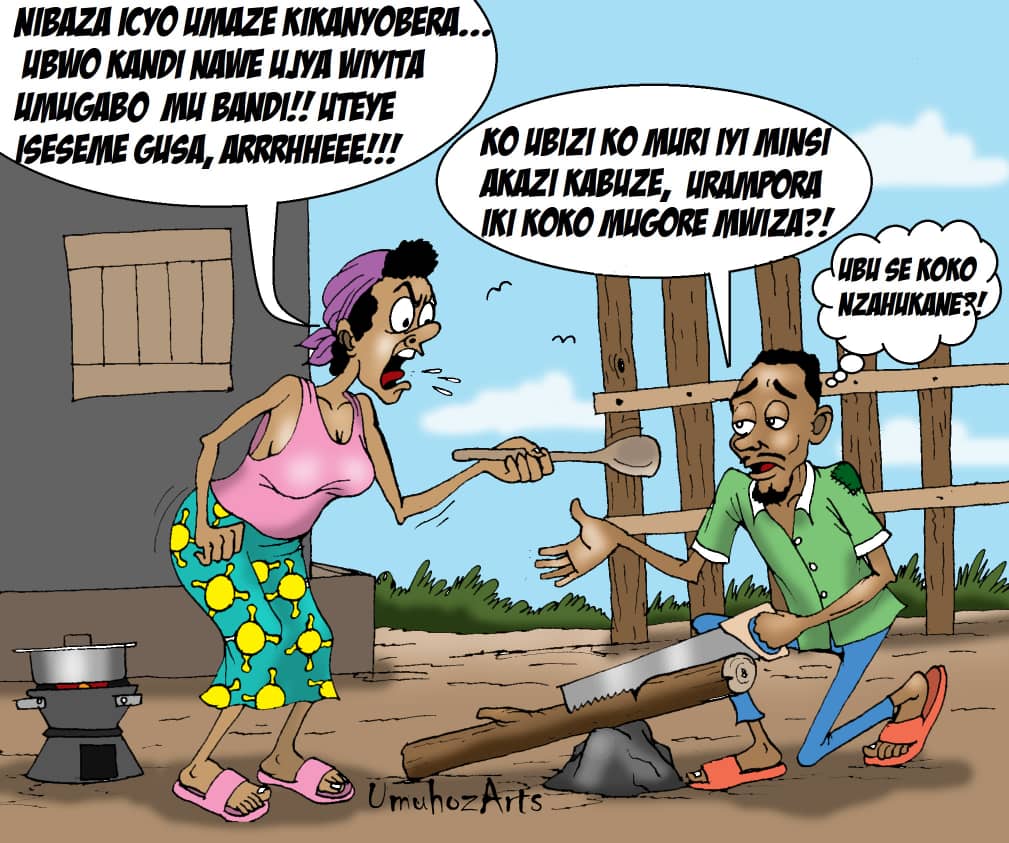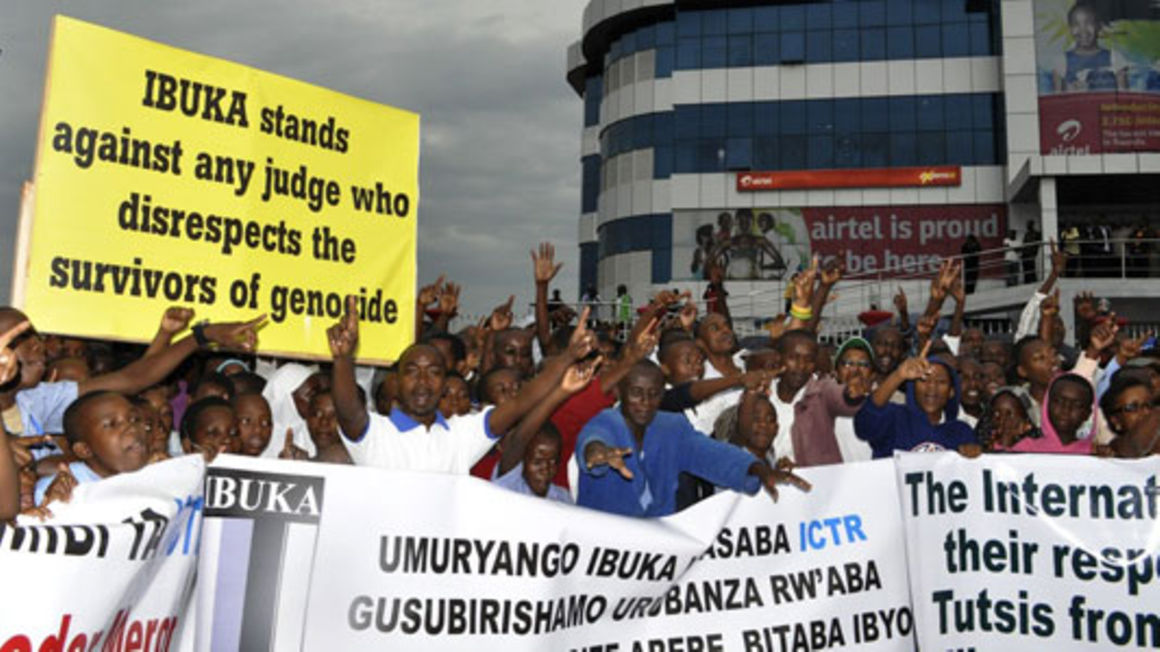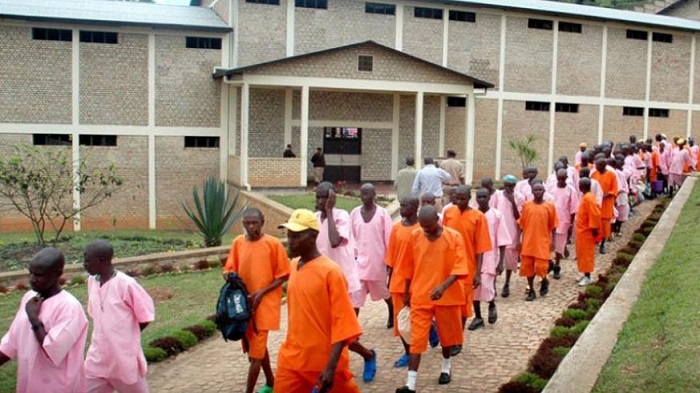
By Noel Mporebuke
As most of those killed in 1994 Genocide against Tutsi were men and because many male perpetrators fled to other countries, 70 percent of Rwanda’s post-genocide population was female. They were obliged to ensure the survival of their families.
Those mothers took in orphaned children and organized support groups for widows. Women moved from cleaning buildings to reconstructing them. They started farming and doing businesses. Throughout the country, they created stability and efforts to rebuild and heal in the after effects of terrible violence.
The political will of the Rwandan leader Paul Kagame and the 4th World Conference on Women held in Beijing (China) in 1995 were the key factors that highlighted important changes in the Rwandan society in terms of Gender equality.
President Paul Kagame addressing the Global Gender Summit, the first of its kind to take place in Africa, he said that the fight for gender equality is common sense.
“Women are our mothers, sisters, wives and daughters. Whenever women gain, everybody gains and nobody loses,” he said.

Being the minister of Gender and Family Promotion gave her courage of empowering women by enforcing law and policies that promote women’s rights and gender equality. She also witnessed in Rwanda Women Rising book that she felt the way to contribute was to train other women to come and do better work than she did.
The National Gender Policy highlights principal guidelines on which sectored policies and programs will base to integrate gender issues in their respective social, cultural, economic and political planning and programming. Implementation of the policy requires joint action of different actors, decision-makers, development workers and the entire population.
Key Achievements in Gender Equality and Women’s Empowerment are Poverty Reduction through Vision 2020, the Economic Development and Poverty Reduction Strategy (EDPRS), Access to Education, Access to Health where in 2018, 74.5 of women had Health Insurance, Fighting Violence against Women, Women in Economy, Decision Making and Gender Institutional Mechanisms.
The great law that impacted most on women rising after 1994 is Law N° 22/99 of 12/11/1999 related to matrimonial regimes, liberalities and successions, giving to women the same rights of succession as men; and Land Organic Law N°08/2005: Equal access to land for both men and women.
Gender Monitoring Office report argued that land ownership has been instrument in contributing to women’s access to finance as Land is considered the main asset for production and investment.
Before 1994, Gender inequalities have not seen as unjust, but as respected social normality. This weakened their bargaining position on matters concerning their access to and control over resources and the degree of their level of participation in the development process.
In order to promote gender equality, Rwanda has established Official Gazette N°14 of 06 04 2009-Law on prevention and punishment of Gender-Based Violence-Page 81-105-September 2008 to legalize the society.
Women require economic freedom, obtained notably by promoting their rights in management and access to resources, employment, adequate working conditions and economic capacity building. This could not have been achieved but the government of Rwanda put in place Girls Education Policy 2008, to enforce education for all.
By now, Rwanda’s education system is considered one of the most advanced in Africa, with free and compulsory access to primary school and the first years of high school. About 100% of Rwandan children are incorporated into primary school and 75% of young people ages 15+ are literate. However, high school attendance is significantly low, counting with just 23% of young people, of which women represent only 30% as shown by The National Gender Policy.
The new index by Gender Monitoring Office report showed in 2019 that Rwanda has, for the past 25 years, achieved unprecedented progress in gender equality on economic transformation, social transformation and transformational governance.
In her address, Hon. Minister Amb. Nyirahabimana Soline, the Guest of Honor once in The African Women in Leadership Conference (AWLC) asserted that gender equality is a prerequisite at every level to both men and women. She shared her belief that there is no doubt that if African women are given opportunity and space it can greatly impact development.
Thanks to the Political will to promote women and different policies in place, women took initiatives and join businesses, cooperatives, saving groups etc.
Nyirangwabije a member of Twongere Ikawa Coko- a Gakenke district coffee cooperative says that the cooperative launched a girl’s tailoring school, which is pro-bono and the only criteria to join is to own at least 100 coffee trees, and most of the 30 village girls in first intake are school dropouts.
“I realized most of us ageing out and yet our youth want quick money. By starting a school where girls can learn tailoring they can earn but also get coffees growing skills as an additional knowledge so that they can love coffee and replace us,” Nyirangwabije explains to The New Times.
As reported by Rwanda Cooperatives Statistics report, there are 10,103 registered cooperatives, SACCOs, unions and federations with more than 5.2 million members. Among 5.2 million members, 2,247,009 million are women. The share capital of 10,103 cooperatives operating in Rwanda is 51,373,827,417 billion Rwandan francs.
The Ministry of Gender and Family Promotion in close collaboration with National Women Council and other different partners mobilized 2,310 people on hygiene and sanitation, 76,080 people (71,555 Women and 4,525 men) were mobilized on family planning and reproductive health; 10,700people (9,308 women and 1,392 men) on fighting against GBV: 18,035 people (10,704 women and 7,331 men) were mobilized on fighting malnutrition and stunting among children and51,045 people (29,864 women and 21,181 men) were mobilized on fighting teenage pregnancy.
The National Gender Policy is also in harmony with the Millennium Development Goals (MDGs), since the third Goal of MDGs is to achieve gender equality and to empower women. The New Partnership for Africa’s Development (NEPAD) is also one of the key political commitments which enable African countries to accelerate the empowerment of women.
Rwanda Finscope 2020 survey about financial inclusion got that in total, 93% (about 7 million adults) in Rwanda are financially included (including both formal and informal financial products/services). Levels of financial inclusion vary from 99% in Gasabo district to about 83% in Rusizi district. Gender gap in financial inclusion is closing with only 8% excluded women compared to 7% amongst male counterparts.








